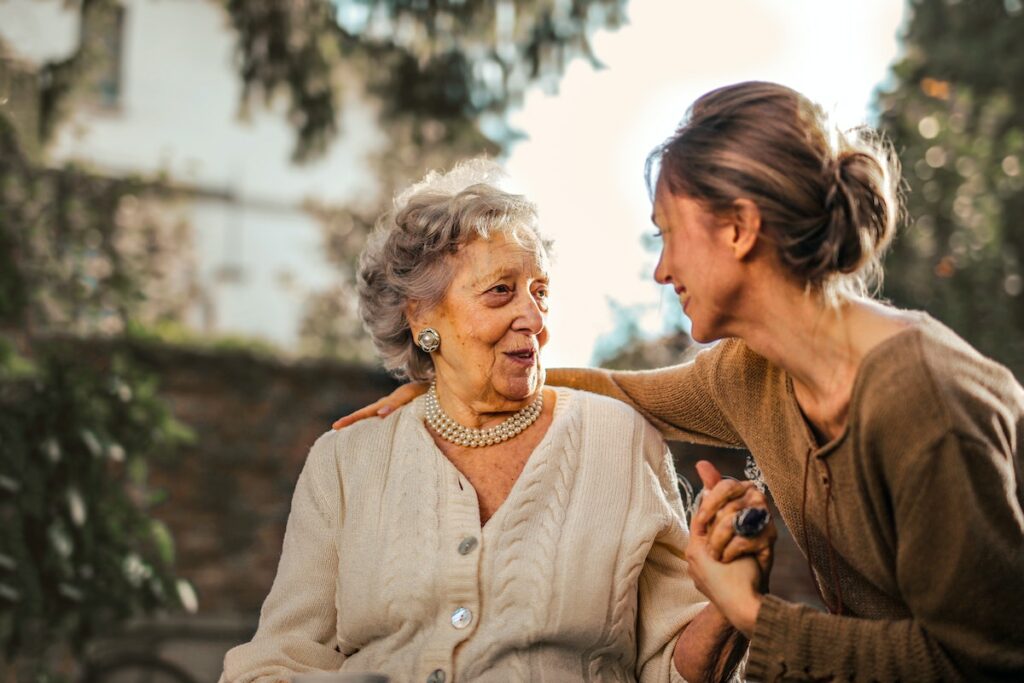Does Loneliness Age Your Body More Quickly?

In a world where we are so well connected, the paradox of loneliness has become an epidemic. We live in an era of unprecedented connectivity, yet many people find themselves trapped in the isolating grasp of loneliness. This profound feeling of social disconnect not only affects our mental well-being but also leaves an indelible mark on our physical health. It is essential to delve into the realm of loneliness, backed by statistics and scientific evidence, to truly comprehend its impact on the human body.

Recent studies have revealed alarming statistics that emphasize the widespread prevalence of loneliness. According to a survey by the Kaiser Family Foundation, 22% of adults in the United States, roughly 1 in 5 individuals, report feeling lonely or socially isolated. In the United Kingdom, the Office for National Statistics found that approximately 5% of adults reported feeling lonely “often” or “always.” These numbers may seem staggering, but they only scratch the surface of a complex and deeply rooted issue.
Scientific research has provided us with a profound understanding of how loneliness can affect our bodies. The evidence suggests that loneliness has the potential to accelerate the ageing process, impacting various physiological mechanisms. It has been discovered that loneliness can trigger chronic inflammation, a harmful state associated with the onset and progression of numerous age-related diseases. In fact, researchers at the University of California, Los Angeles found that lonely individuals had higher levels of pro-inflammatory proteins in their blood, indicating a heightened state of inflammation.
The role of telomeres, those tiny protective caps at the ends of our chromosomes, has emerged as a significant factor in the aging process. Multiple studies have shown a correlation between loneliness and shortened telomeres, which implies accelerated cellular aging. One study conducted at the University of California, San Francisco, found that individuals who experienced chronic loneliness had shorter telomeres than their socially connected counterparts. This remarkable finding indicates that loneliness may have a profound impact on our cells’ ability to replicate and rejuvenate, ultimately influencing the overall aging process.
The detrimental effects of loneliness extend beyond inflammation and cellular aging. Chronic loneliness can disrupt the delicate balance of hormones in our bodies, particularly increasing the production of stress hormones like cortisol. Elevated cortisol levels have been linked to numerous adverse health outcomes, including impaired cognitive function, decreased bone density, and increased deposition of abdominal fat. The impact of loneliness on sleep cannot be overlooked either. Sleep disturbances, which are often associated with loneliness, can have profound consequences on our physical health. Poor sleep quality and duration are associated with a higher risk of chronic conditions such as obesity, diabetes, and cardiovascular disease.

While statistics and scientific evidence shed light on the detrimental effects of loneliness, there is also hope and inspiration to be found. The journey towards overcoming loneliness and fostering connections can be a transformative one. By recognizing the impact of loneliness on our bodies, we can rally together to create inclusive communities, support networks, and interventions that promote social engagement and well-being. The power of human connection, compassion, and empathy cannot be underestimated when it comes to combatting the loneliness epidemic.
The grip of loneliness is tightening its hold on society, leaving both mental and physical scars. However, armed with statistics and scientific evidence, we have the knowledge and awareness to initiate change. Let us forge ahead with determination and resilience, inspiring connections that defy the isolating forces of loneliness. By doing so, we can pave the way for a world where every individual feels valued, heard, and embraced—an interconnected tapestry of compassion and understanding that defies the aging effects of loneliness.

Loneliness and ageing: understanding the impact on your body
Loneliness, a subjective feeling of social isolation, has been a topic of increasing concern in recent years. It not only affects our mental well-being but also has the potential to impact our physical health. Research suggests that loneliness may contribute to the aging process, accelerating it in various ways. Let’s explore the relationship between loneliness and the aging of the body.
Inflammation and Immune Function: Loneliness has been linked to increased inflammation in the body. Chronic inflammation is associated with a wide range of age-related diseases, including cardiovascular disease, diabetes, and certain cancers. Moreover, loneliness can weaken the immune system, making individuals more susceptible to infections and slower in their recovery.
Telomeres and Cellular Ageing: Telomeres, the protective caps at the ends of our chromosomes, play a crucial role in cellular aging. Loneliness has been found to be associated with shorter telomeres, suggesting accelerated cellular aging. Shortened telomeres have been linked to a higher risk of age-related diseases and overall mortality.
Stress and Hormonal Changes: Loneliness can be a significant source of chronic stress. Prolonged stress affects the body’s hormonal balance, leading to increased levels of stress hormones like cortisol. Elevated cortisol levels have been linked to various health problems, including impaired cognitive function, decreased bone density, and increased abdominal fat deposition.
Sleep Disturbances: Loneliness and social isolation can disrupt sleep patterns, leading to poor sleep quality and duration. Sleep disturbances have a detrimental effect on overall health and are associated with an increased risk of chronic conditions such as obesity, diabetes, and cardiovascular disease. Additionally, inadequate sleep can contribute to cognitive decline and mood disorders, exacerbating feelings of loneliness.
Lifestyle Factors: Loneliness often leads to unhealthy lifestyle choices. Individuals who feel socially isolated may be more prone to sedentary behaviour, unhealthy dietary habits, and substance abuse. These lifestyle factors can have a profound impact on aging, accelerating the development of age-related conditions and reducing overall longevity.

While loneliness itself may not directly cause aging, it appears to influence several biological processes that contribute to accelerated aging. The effects of loneliness on the body are complex and interconnected, involving both physiological and psychological pathways.
Addressing loneliness and promoting social connections is crucial for maintaining both mental and physical well-being. Interventions such as social support networks, community engagement, and therapy can help individuals combat loneliness and its potential effects on aging. Additionally, adopting a healthy lifestyle, including regular exercise, a balanced diet, and sufficient sleep, can mitigate some of the negative impacts of loneliness on the body.
Loneliness has the potential to age the body more quickly through various mechanisms, including inflammation, cellular aging, hormonal changes, sleep disturbances, and unhealthy lifestyle choices. Recognizing the impact of loneliness on ageing can help us prioritize social connections and implement changes to foster a sense of belonging and well-being in individuals of all ages.
In a world where we are so well connected, have we forgotten that the most profound loneliness can reside in the absence of true, heartfelt connections?
Do you want to share your story and inspire our readers ? Know that every story is paving the way for a brighter, happier future.




